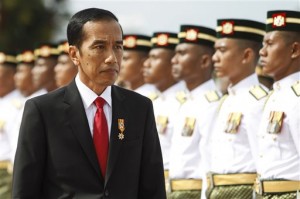CLARKFIELD, Philippines—With the services sector accounting for more than half of its economic growth, the Philippines is now pushing for the easy movement of the services sector from one border to another in the Asia Pacific region.
At the conclusion here of the two-day first Asia Pacific Economic Cooperation Senior Officials Meeting (Apec-SOM), the Philippine sought the adoption of a services cooperation framework hopefully by November when leaders of the 21 Apec economies gather for the annual summit.
“It’s one of the deliverables,” Foreign Undersecretary Laura del Rosario said of the formulation of an Apec services cooperation framework, at a news conference that concluded the first Apec-SOM which she chaired for two days at the Fontana Leisure Park.
The Apec senior officials will meet two more times in May in Boracay and in August in Cebu to finalize their discussions and recommendations on how to further advance Apec’s objectives which for this year was “inclusive growth” for all the Apec economies.
The senior officials will submit their recommendations to Apec ministers who in turn will endorse them to Apec leaders for their approval in the Manila summit on November 18 and 19.
With the Philippines serving as host of this year’s Apec leaders’ summit, Del Rosario said it took the initiative to introduce a “big item” under Apec and this was the formulation of a service cooperation framework.
“When people think of Apec, they always think of goods and products and how it is moved from one border to another. What we don’t know is that part of the economic growth of a country is the area of services,” she said.
And she said that Apec senior officials “readily accepted and realized that services go hand in hand with trade.
“Because when you buy a car, it does not end there. Somebody has to take care of the selling, advertising, and maintaining it,” she said.
Del Rosario said the Philippines services sector was the fast-growing sector, making up 54 percent of the country’s gross domestic product. She said that services like the business processing outsourcing and information technology are fast-growing service sectors in the country as she noted the need for the country to take advantage of a sector that it was good at.
“So we are thinking how do we spread services (like tourism, medical, logistics and couriers) and are there any restrictions to services,” Del Rosario said.
She cited as example the professional services where she asked whether economies would allow foreign teachers to come in and share their expertise to another country. And in this case, she said there was the issue on visas and work permits.


